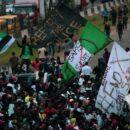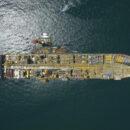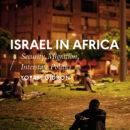“Liberators” and Military Entrepreneurs
April’s issue of African Affairs contains an interesting article by Marielle Debos.
Entitled “Fluid Loyalties in a Regional Crisis: Chadian “˜Ex-Liberators’ in the Central African Republic” it examines a neglected pattern of the regional crisis in Darfur, Chad, and the Central African Republic, namely the cross-border activities of combatants with fluid loyalties. The trajectories of Chadian “˜ex-liberators’ in CAR, which have been little documented, are used to illustrate the regional movements of armed men. The article explains how unemployed Chadian soldiers were recruited to fight with Franí§ois Bozizé in CAR and why many of them joined other armed groups after Bozizé’s takeover. The reconversions of armed combatants, who may easily shift allegiance and cross borders to carry on with their “˜politico-military careers’, is thus a structural characteristic of the current conflict, which has major implications both at the local and transnational levels. Debos’ interviewed a range of former combatants from Chad and CAR of numerous ethnicities. Her article concludes that freelance military entrepreneurs’ trajectories are crucial in understanding the unfolding of this regional crisis.
As the Darfur crisis has continued, it has settled into a pattern that is reminiscent of the protracted conflicts in Chad and CAR over the last thirty years (and longer). Increasingly, policymakers, activists and scholars are obliged to look at the patterns of these conflicts to understand the dynamics of Darfur’s crisis, and the roles played by local political and military leaders.






